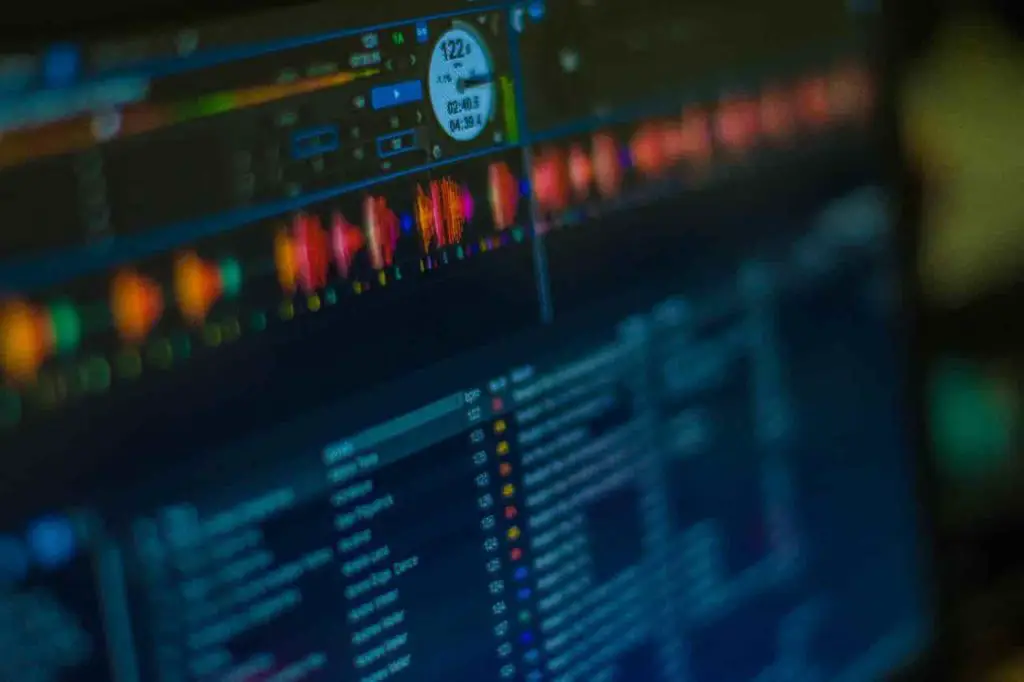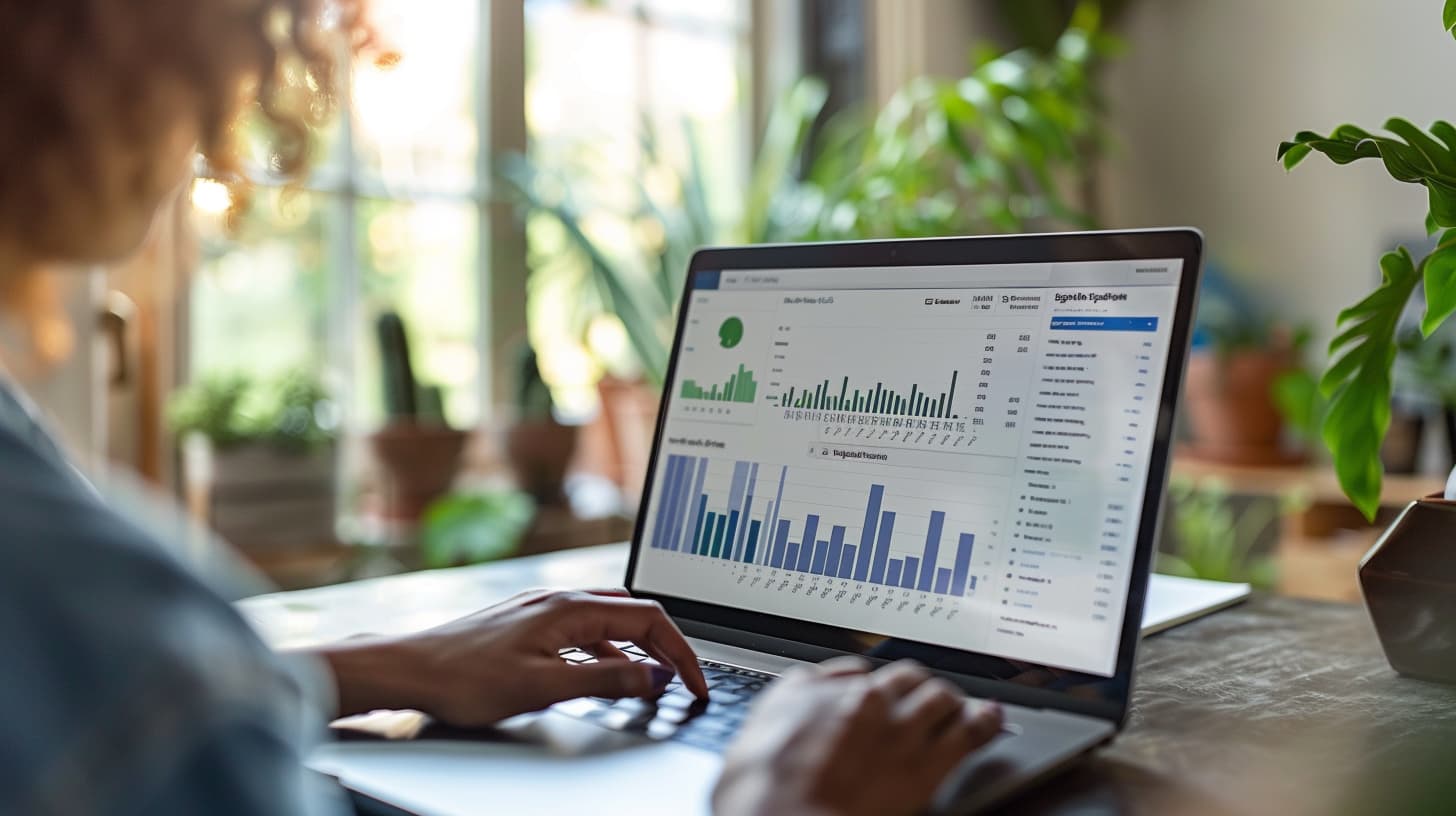Making a living from trading may sound like an attractive option. However, if you’re just getting started, you may find it a little intimidating to see all those charts, numbers, and competing strategies that promise a steady income. Wondering if it’s possible to make a living by trading forex?
You can make a living by trading forex, though it is risky and requires commitment and a sound strategy. You need to start with an amount you’re prepared to lose and make careful decisions. Many forex trading platforms offer demo accounts where traders test their strategies before entering the real market.
Most serious forex traders prefer to watch the charts and follow the news to discover stories that may affect the value of a currency. It can seem a little intimidating until you get the hang of it, but forex can provide a steady income if you know what you’re doing. Read on to see how that’s possible.
What Should You Know About Forex Before You Start?
The number one thing to remember about forex is that you’re purely trading currencies. It’s different from trading stocks or options vs. futures because a currency isn’t backed by a company’s assets, such as real estate or office equipment.
When you invest in any currency on the forex markets, you express confidence that it can retain its value at least long enough for you to benefit from it. This value may depend on quite a few variables, including the health of a country’s economy and its ability to remain politically stable.
Before you start, you should especially learn the terminology involved in forex trading. Forex.com has a good glossary of terms that are relevant to forex trading. Mastering this terminology will be very helpful if you need to seek advice from other professional forex traders.
Is Trading Forex a Ponzi Scheme?
Some have stated that trading in Forex is a Ponzi scheme. The problem with this comparison is that a Ponzi scheme involves promises of “guaranteed high returns.” Even though it can be tempting, there are no guarantees in the forex market to guarantee you a steady income.
In other words, if someone becomes rich because they can manipulate and predict the movements of currency rates, then this is not a Ponzi scheme.
How Does Trading Forex Differ From Other Types of Investment?
When you invest your money into stocks or other assets on the stock market, you can make money as long as demand for those securities remains strong. This means there’s always a risk involved when investing in any security. The most significant risk is how volatile the stock market can be, leading to a substantial loss in your investment. The stock market can open or close down for the day based on news from any corner of the world, and it’s up to you how much risk you can afford when investing. The pros and cons of hiring an accountant should be considered to help you successfully navigate risk.
When trading currency, on the other hand, your biggest concern is potential risks associated with the country where that currency is being used. You can think of it this way: If you can predict which countries are poised for economic success, you can choose to invest in their currencies and potentially make a profit from exchange rates. If successful, it’s a great way how to build wealth from nothing.
The reason forex trading can be more profitable than other types of investments is simple:
- if you know what you’re doing, you can effectively predict how a country will perform.
- It can be a risky investment if you can’t accurately predict the economic performance of a foreign country and make consistently accurate predictions.
What Do You Need To Get Started With Forex Trading?
Is there anything you need to have before you can start making a living at forex trading? Access to the proper tools can give you the edge you need to turn forex trading into a steady source of income. Here’s what you need:

A Good Computer With Reliable, Low-Latency Internet Access
While you don’t need the most advanced gaming computer on the market, a solid device with adequate processing power is an essential tool for anyone serious about forex trading.
A decent computer will have enough processing power and RAM to allow you to react quickly to opportunities.
You’ll also need high-speed, low-latency internet access so that you can get real-time chart data without trouble.
A Place To Focus on Forex
It can be your favorite cafe, a public library, or an unused room in your house that you can turn into a functioning home office.
A door lock is optional but recommended if you prefer the home office. It just has to be a place where you can pursue your trading strategy with very few interruptions.
A Reliable Broker
A reliable broker is a must-have for seamless trading. Reliability should be placed even above the commission fees. If a broker frequently freezes trading for some assets or otherwise seems less than reliable, you should move on to another.
You can also find reliable forex brokers servicing other parts of the world, such as Indonesia and Malaysia, not just the US. Below are some examples of brokers:
Popular Brokers for Trading Forex:
- FXTM
- Dukascopy
- XM
- IG
- CMC Markets
- DBS Vickers
- FXC Markets
- Hong Leong Financial Services Berhad
- JF Capital Pte Ltd
- Maxitrader Pty Limited
- Maybank Kim Eng Securities (Malaysia) Berhad
Be sure to know direct deposit times for popular banks so you know when your money is available should you need to transfer to your broker account.
Up-to-the-Minute Price Charts
TradingView is a popular pick with traders because it has price charts for most major asset pairs, including currencies. The time increments of its charts can be set to as little as one minute. You can typically adjust these charts to anything appropriate to your preferred trading strategy.
If you intend to do a lot of day trading, it makes sense to select shorter intervals:
- Professional day traders prefer 1-minute or 5-minute intervals, for instance.
Time intervals of 4 hours or 8 hours might make more sense if you trade as a “side gig” in which you might make a couple of trades first thing in the morning, go to your day job, and then check the charts when you get home.
Longer time intervals ranging from 1 day to 1 month might make more sense for people who trade less frequently and don’t feel the need to stare at charts all day.
A Good Newsfeed
The value of currencies depends on what’s going on in the world.
- Are refugees fleeing a country due to political instability or a terrible inflation problem?
- Is war between two or more countries looming?
- Did a government recently enact a new monetary or fiscal policy or introduce new financial regulations?
These are all things that can impact the value of a currency.
A Solid Strategy
You can’t over-emphasize the importance of a trading strategy. If you aren’t sure where to start, seek out a good forex sandbox that you can use to practice trading.
IQ Forex is a good sandbox for practicing “paper trading” or conducting mock trades before jumping into live trading with your own money.
The best demo accounts simulate live trading in real-time and usually come preloaded with virtual money. They will have nearly everything that a “live” account would have, except traders can’t deposit their own money or withdraw their profits.
Several top forex brokers like Forex.com have free demo accounts available so that their users can get the hang of trading currencies before putting their own money at risk.
Patience and Discipline
Beginners may fall for common pitfalls because they lack the patience to maximize their profits or the discipline to stick to a specific strategy even if an asset suddenly skyrockets in value. At its best, forex is dull but can earn you a living if you can stay focused and stick to a plan.
Possible Challenges
Although it is possible to boost your income or earn a living by trading currencies, it does pose a few challenges that might scare off anyone who isn’t ready for it. These include:
High Barrier to Entry
Like most investment options, forex trading takes money to make money. Many professional traders recommend not investing any more than you can afford to lose because it’s possible to lose your shirt while trading any asset, including currencies.
Experienced forex traders will usually recommend starting with at least five times your desired annual return.
- If you take this advice, it means you’ll need at least $250,000 to earn an annual income of $50,000 by forex trading. However, trading at this level is hazardous for beginners, who are more likely to lose much money on a single bad trade. Beginners should build-up to this level while they get the hang of trading currencies.
The Time It Takes To Develop a Strategy
While most professional traders have lost money on a bad trade at some point, they know that they’re more likely to lose if they don’t stick to their preferred strategy.
Less patient, beginning traders are more likely to quit before they get very far because it can take time to gain a good feel for forex and formulate their strategies.
Additionally, your federal tax refund taxable status may change if you show a profit.
The Learning Curve
Many beginning forex traders drop out before getting very far because they find the learning curve quite intimidating.
- Do you know how to spot a good opportunity? Can you develop the patience and discipline it takes to stick to a strategy when others might fall for revenge trading, “Fear, Uncertainty, Doubt (FUD)” or “Fear of Missing Out (FOMO)?”
Traders will also need to learn about concepts such as reading charts. Experienced traders typically look for specific patterns in the charts to indicate that an asset is about to make a particular move. It’s not one of the best ways to make money online with no experience because you should be knowledgeable.
Those planning to jump into trading forex for a living should also learn about concepts like tactical asset allocation. This concept, also called active management, involves getting the hang of accurate forecasting of asset returns, volatility, and correlations. The more volatile the asset is, the riskier it is to invest, even if it looks like a good bargain right now.
This makes risk management an essential component of trading any asset, including currencies.
Once beginning traders start growing accustomed to the basics of forex trading, it’s normal to have a highly conservative approach to trading. Risk management requires much finesse to identify and evaluate the risks involved in any particular trade.
Liquidity and Counterparty Risks
Liquidity amounts to, “How easy would it be to buy or sell this asset at a good price point when I’m ready?” If the buying and selling action seems slow, it may make sense to avoid an asset even if it otherwise seems like a good investment.
The counterparty would typically be your broker, which you should choose carefully due to the risk that it could freeze trading or go bankrupt.
A broker essentially acts as a middleman that holds your money and the assets in your portfolio. If they disappear, freeze your assets, or otherwise make it impossible to withdraw your earnings, you may be out of luck unless you can afford an attorney who can go to bat for you.
For instance, the trading app Robinhood recently froze assets like the GameStop stock and some cryptocurrencies. The official reason was that Robinhood wanted to protect its users from extreme volatility, although users didn’t necessarily believe this explanation.
In the aftermath of the famous GameStop short squeeze, some users filed lawsuits calling the restrictions “unfair and illegal.” Politicians like Ted Cruz and Elizabeth Warren also weighed in with their concerns about Robinhood’s actions.
Variables Outside of Your Control
Forex is risky because you’ll be trading currencies against one another. That requires familiarity with concepts such as monetary policy. You also need to follow the news to learn about each country’s overall economic health and internal stability, financial regulations, taxes, and existing or pending legislation.
It may be unwise to consider investing in a nation’s currency if that nation has high inflation or is currently going through a civil war, for instance. Publications such as Kiplinger’s Personal Finance vs. Money Magazine cover such topics at times.
Forex Trading Is Time-Consuming
Beginning traders are often discouraged because they need to watch the markets for extended periods carefully. The time it takes to execute a successful trade is sometimes seen as a drawback because traders are watching charts and news feeds for hours at a time.
Traders often use bots to discover profitable opportunities, but these bots are not always successful.
Bots are limited by the parameters programmed into them and may miss a potentially profitable trade. For this reason, experienced traders make bots only one of a “toolbox” full of tools that they can use to spot opportunities.
You May Face Social Pressure To Invest in a Certain Currency
Once your friends know that you trade forex for a living, you may face pressure from a few people to invest in certain countries’ currencies or avoid the currencies of other countries.
Their reasons may range from one country having pretty beaches to another country accused of human rights violations.
While a country with attractive beaches could imply a strong tourism industry, traders have made mistakes by falling for social pressure from their circle of friends or online social media.
Beginning traders have lost money by paying too much attention to irrelevant chatter on Twitter, for instance. In some cases, this chatter could be from fellow traders who don’t want to admit that they made a mistake or want to pass their soon-to-be-worthless holdings off to someone else before their investment goes bust.
Benefits of Earning a Living From Forex
If you’re still reading, you might have guessed that forex does have its benefits, including:
A Shot at Financial Independence
Many people consider trading forex because they like the idea of quitting their day job and going it alone. Don’t get me wrong, it’s not easy, and staring at price charts does get dull. However, it does offer a chance at a steady income once you get the hang of it. You can use the steady income as a way how to retire on 500k.
Works Well for Self-Motivated and Self-Disciplined People
Unless you work for a firm that manages investment portfolios, you won’t have a boss. So, you’ll have to find motivation and discipline from within. If that sounds like something you can do, you are more likely to stick to a working strategy and succeed in forex trading.
You Decide What Works for You
While a sound strategy and the ability to fall for common pitfalls that beginning traders face are required, you can customize your plan and preferred assets to suit your goals.
For example, some people prefer trading only the top national currencies. Others prefer to keep their eyes peeled for lucrative opportunities regardless of which currencies they are or have a bot do it for them.

It only requires a reliable high-speed Internet connection and a computer capable of keeping up with the constant tracking of real-time data.
Many people like to set up a home office for trading forex, which comes with the added benefit of saving time and gas that would otherwise be used to commute to a traditional “day job.” It may even impress your friends that you can make a living as a professional forex trader.
Common Forex Trading Strategies
What strategy would work best for your goals? It may be tempting to use high leverage ratio and high-risk tactics that could net you high returns if they work. However, if you intend to make a living from trading forex, you may prefer to play it a little safer.
Common basic strategies used by professional forex traders include:
Scalping
Like ticket scalpers on the day of a major sporting event, scalpers on the forex market take advantage of short-term trades that happen within a matter of minutes. They seek to beat the bid/ask spread. This tactic can be a somewhat risky trading style that involves frequent trades.
Day Trading
Day trading generally involves buying and selling within a space of 24 hours. The majority of day traders frequently take advantage of short-term price moves in their target assets. These traders often keep a close eye on newsfeeds and price charts for several hours at a time.
Swing Trading
Swing trading is a slightly longer-term version of day trading that can take place over several days. Like day traders, swing traders will frequently check their target assets’ prices and usually refresh their charts at least once an hour.
Positional Trading
Positional trading often requires patience because it involves holding an asset over more extended periods.
Long-term investors typically do best with investments that can maintain or increase their value over long periods. For example, investors who held Tesla stock for most of 2020, for instance, could have seen gains of up to 740%.
Once you master the basic strategies, you may want to look into some advanced strategies such as “50 pips a day.” Pips refer to gains or losses denominated by the last decimal point in the displayed exchange rate in a trading pair. For most currencies, the pip would be the fourth decimal point (which would look similar to 0.0000 when a currency in a trading pair bottomed out).
What Time is the Best Time to Trade Forex?
The best time to trade forex can depend on your country of residence and how you prefer to trade.
Advanced traders can often do well during times when others pull back for a break.
Sometimes it’s best to wait for the newsfeeds that can affect trading pairs, such as central bank decisions or interest rate changes, before jumping in. The same can go for when a company announces strong earnings results. Positive stock price movements can indicate a good time to short major currency pairs because people will be betting on less volatility in those exchange rates.

Forex trading can become addictive if you enjoy the rush of making significant gains and also the idea of gaining financial independence by earning more than enough cash to live on for years without having to rely on a regular “day job.” You won’t need to keep telling everyone that “I don’t want to work anymore” because you may love currency trading.
Who are the Wealthiest Forex Traders?
The wealthiest forex traders can command large incomes from their trusted trading techniques. They can also earn rewards for exceptional performance by linking the accounts of a forex broker with global depositary receipts (GDRs).
- One of the highest-earning FX traders is Jane Liao, who began her career as an independent trader in the 1980s and became a fund manager at Matheson Securities. She manages her Asian hedge fund and has earned more than $97 million over the last five years alone.
Summary on Living Off of Forex Trading Income
It is possible to make a living from trading forex if you are self-motivated and self-disciplined, have a solid strategy, and avoid common beginner mistakes. You could make $2000 in a month with focus.
Prospective forex traders are often discouraged because they lack the time or money to be good at forex. If you start with a small amount and put in the time to learn, it is possible to make a steady income while trading forex.



